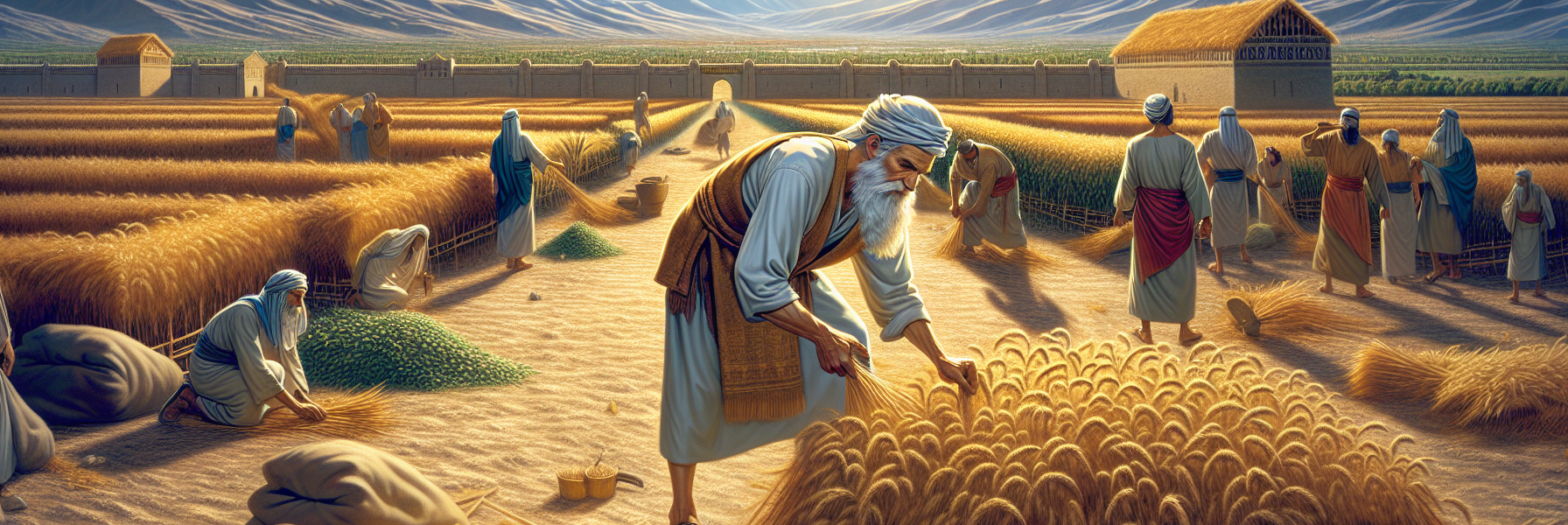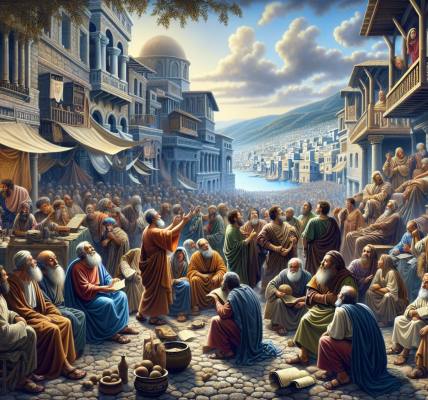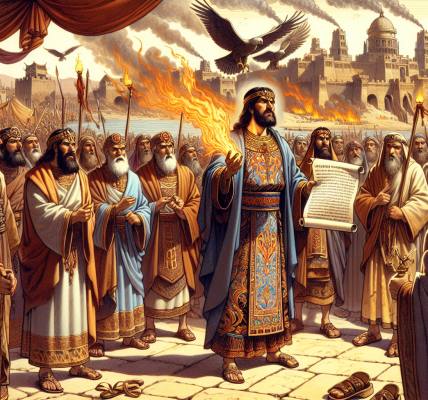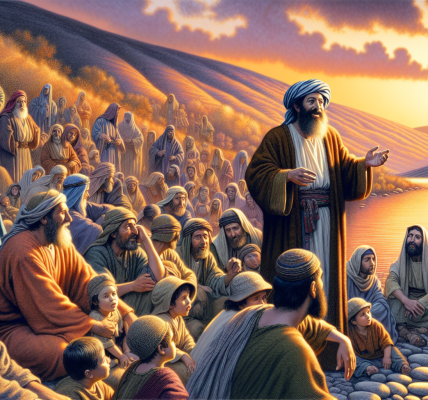**The Wisdom of the Humble: A Tale from Havilah**
In the ancient land of Havilah, nestled between rolling hills and fertile valleys, there lived a man named Eliab. He was a farmer, known throughout the region for his diligence and the abundance of his fields. Yet, what set Eliab apart was not merely his prosperity, but the wisdom with which he governed his household and conducted his affairs. For Eliab cherished the words of King Solomon, particularly the proverb that declared, *”A good name is more desirable than great riches; to be esteemed is better than silver or gold.”*
One summer, as the sun blazed relentlessly over the land, a great famine swept through Havilah. The streams dried up, the crops withered, and many families faced starvation. The wealthiest men in the city, proud and self-assured, hoarded their grain, selling it at exorbitant prices to the desperate. Among them was a merchant named Rezon, a man of sharp tongue and sharper dealings, who scoffed at the plight of the poor.
Eliab, however, remembered another proverb: *”The rich and the poor have this in common: The Lord is the Maker of them all.”* Though his own stores were not endless, he opened his barns to the hungry, giving freely to widows and orphans. His wife, Miriam, baked bread daily, distributing it to those who came to their door. Their children, though young, learned to serve with joy, carrying water to weary travelers and sharing what little they had.
One evening, as Eliab walked through his fields, praying for rain, he noticed a stranger lying beneath an olive tree, weak from hunger. The man’s clothes were tattered, his face lined with hardship. Without hesitation, Eliab brought him to his home, washed his feet, and set a meal before him. The stranger, whose name was Jotham, wept at such kindness. “Why do you treat me, a foreigner, with such honor?” he asked.
Eliab smiled gently. *”Whoever is kind to the poor lends to the Lord, and He will reward them for what they have done.”*
As the days passed, Jotham regained his strength. He revealed that he was a skilled stonemason, displaced by war in the north. Grateful for Eliab’s mercy, he offered to build a stronger well for the household, one that would withstand drought. Together, they dug deep into the earth, striking a hidden spring that had lain undiscovered for generations. Fresh water gushed forth, and soon the entire village came to draw from it.
Meanwhile, Rezon’s greed had sown discord among his workers. One night, thieves broke into his storehouses, stealing much of his hoarded grain. His reputation, once feared, now drew scorn, for he had shown no compassion in the time of need.
When the rains finally returned, Eliab’s fields flourished anew, and his generosity became legend. The elders of Havilah sought his counsel, and even the king sent messengers to learn the secret of his wisdom. Eliab simply bowed his head and said, *”Train up a child in the way he should go, and when he is old he will not depart from it. Humility comes before honor.”*
Years later, when Eliab’s children were grown, they carried forward his legacy of kindness. Jotham, now a master builder, raised a monument at the village square, not to glorify a man, but to remind all who passed by: *”The prudent see danger and take refuge, but the simple keep going and pay the penalty.”*
And so, in the land of Havilah, the name of Eliab was remembered not for gold or power, but for the righteousness that outshines them all. For as the proverbs say, *”The reward of humility and the fear of the Lord are riches, honor, and life.”*




